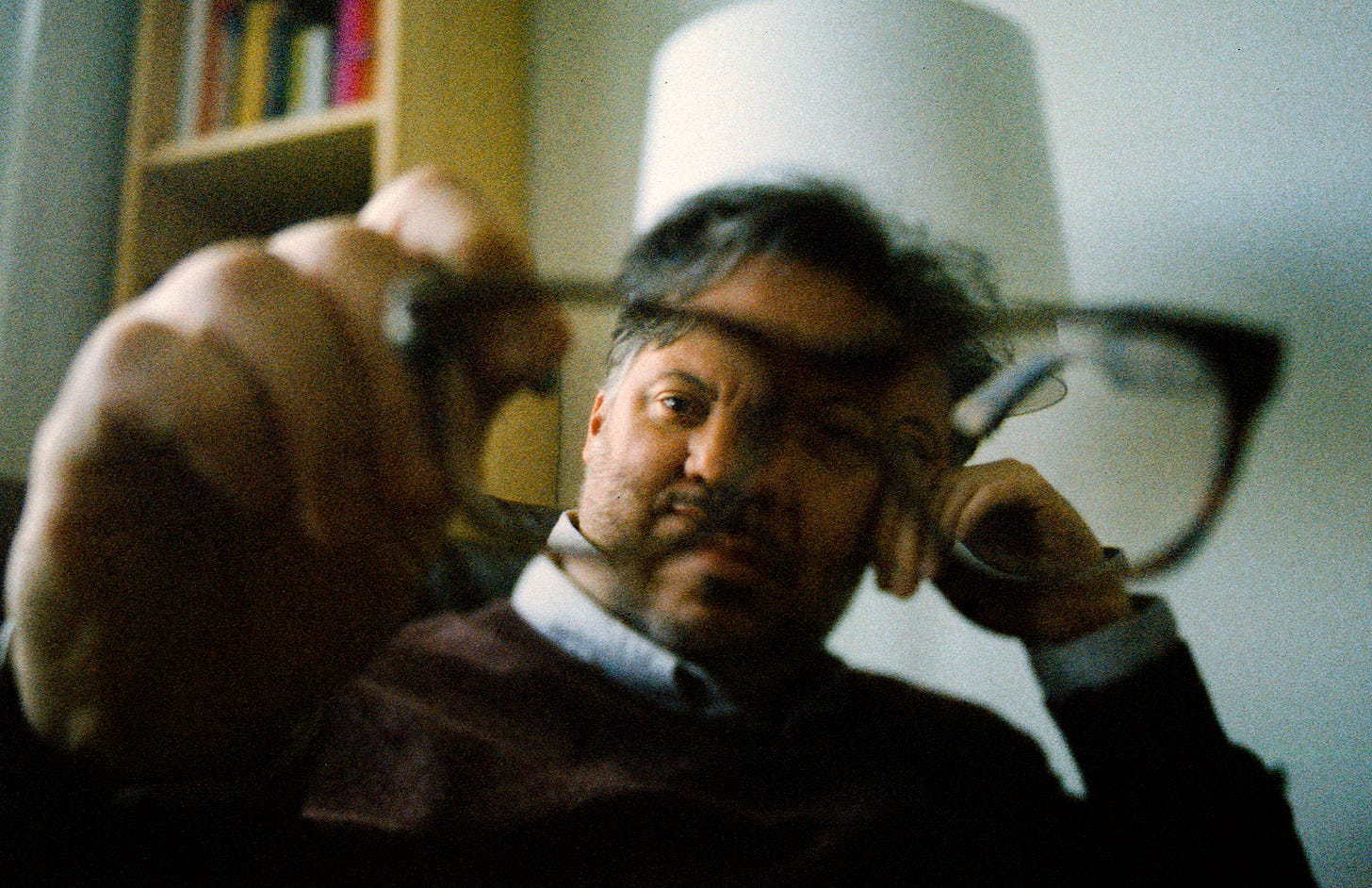Welcome back to what is now Documentary Mixtape.
As a bit of housekeeping, I will be publishing monthly, with some audio and video features coming next month.
If you are a new subscriber of any kind—welcome. I am Bernardo Ruiz, a longtime independent documentary producer and director based in New York. There’s a lot of valuable coverage on independent film, documentary and the overall media ecosystem out there and I have some recommended links below.
What I’ve got here are some insights from inside the kitchen, as it were. I’m not an executive or former longtime staffer at a big media company. I’ve been the equivalent of a line cook for two decades, hopping from kitchen to kitchen to survive. What I’ll offer are some on-the-ground takes from a flailing industry—hopefully with some analysis and context. Maybe it is useful to you. I will also occasionally post about projects I am working on (or those I am trying to work on.)
Today, I am sharing 5 tips on reporting under authoritarianism, from Venezuelan journalist Boris Muñoz. Boris was the founding Opinions Editor of the New York Times en Español and is a 2019 winner of the Maria Moors Cabot Prize for Journalism.
I caught up with him in California this weekend as the protests against workplace immigration raids and mass deportation were met with an immediate and escalating crackdown, including the deployment of National Guard troops.
Boris and fellow Venezuelan journalist Tamoa Calzadilla, recently editor in chief of Factchequeado, a collaborative initiative to fight misinformation and disinformation in Latino and Spanish-speaking communities in the U.S. and who I interviewed for Latino Vote 2024 (PBS), both explained that during a non-traditional presidency, it doesn’t make sense to respond in traditional ways.
They also explained that in the country they both had to leave, there were a series of escalations against the press and the media.
In retrospect, they both wish that media outlets and journalists had banded together sooner.
Here are Boris’s 5 tips:
Don’t normalize the abnormal.
Treating chaos as routine makes it harder to resist.Facts need stories to survive — but also need explanations and a message.
And stories must be marketed aggressively. If truth doesn’t reach people, it loses power.Solidarity is not optional.
[Hugo] Chávez picked us off one by one. We only survived when we stood together.Be truthful and fair — not just “impartial.”
Balance doesn’t mean pretending both sides are equal when one is attacking democracy or dehumanizing immigrants.Protect your vital energy.
Authoritarians don’t just wear down institutions. They wear down people. You’ll need endurance.
Re Tip # 3 - in the last few months, veteran and emerging documentary makers have been gathering to discuss how to build networks of support on a variety of fronts, including how to defend public media. I’ll have some more on that in future posts.
For now, here is a quick recommendation and a call to action:
Direct Distribution - if you don’t already subscribe to Jon Reiss, I recommend his podcast/newsletter. In particular, this discussion with the heads of the new crop of direct distribution services was really valuable:
Defend Public Media - PBS has never had an easy relationship with independent filmmakers. If you dig into the history, you know that editorial tensions are part and parcel of the public media experience for independents. PBS also represents an opportunity for filmmakers to reach a broad-cross section of the American public. Of course, it would be an enormous mistake for filmmakers to abandon this critical, publicly funded infrastructure. If you haven’t you should sign on to Protect My Public Media.






